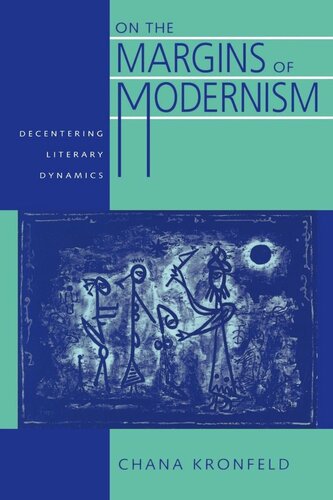

Most ebook files are in PDF format, so you can easily read them using various software such as Foxit Reader or directly on the Google Chrome browser.
Some ebook files are released by publishers in other formats such as .awz, .mobi, .epub, .fb2, etc. You may need to install specific software to read these formats on mobile/PC, such as Calibre.
Please read the tutorial at this link: https://ebookbell.com/faq
We offer FREE conversion to the popular formats you request; however, this may take some time. Therefore, right after payment, please email us, and we will try to provide the service as quickly as possible.
For some exceptional file formats or broken links (if any), please refrain from opening any disputes. Instead, email us first, and we will try to assist within a maximum of 6 hours.
EbookBell Team

4.8
14 reviewsModernism valorizes the marginal, the exile, the "other"—yet we tend to use writing from the most commonly read European languages (English, French, German) as examples of this marginality. Chana Kronfeld counters these dominant models of marginality by looking instead at modernist poetry written in two decentered languages, Hebrew and Yiddish. What results is a bold new model of literary dynamics, one less tied to canonical norms, less limited geographically, and less in danger of universalizing the experience of minority writers. Kronfeld examines the interpenetrations of modernist groupings through examples of Hebrew and Yiddish poetry in Europe, the U.S., and Israel. Her discussions of Amichai, Fogel, Raab, Halpern, Markish, Hofshteyn, and Sutskever will be welcomed by students of modernism in general and Hebrew and Yiddish literatures in particular.